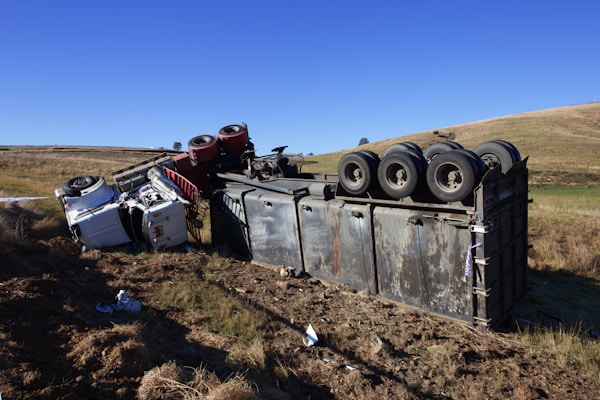How To Address Common Legal Issues for Your Trucking Company
There are many common legal issues that trucking companies face. This article will address some of the most common issues and how to resolve them. Keep reading to learn more about how to address common legal concerns for your trucking company.
How to Address Problems With Cargo

There are a few ways to address problems with cargo. One way is to file a claim with the insurance carrier. The second way is to try and negotiate with the other party. If that doesn’t work, you can go to court. Finally, you can also try arbitration.
A lot can go wrong with your cargo, which is why cargo insurance is vitally important to your business. When you get a truck insurance quote, be sure to ask about cargo insurance and other coverages they recommend.
How to Address Regulatory Compliance Issues
Addressing regulatory compliance issues is important for any trucking company, as there are a number of regulations governing the industry. The most important step in addressing regulatory compliance issues is understanding the relevant regulations and ensuring that your company is in compliance. There are a number of resources available to help you understand the regulations, including government websites and trade associations.
Once you have a good understanding of the regulations, you need to develop policies and procedures to ensure that your company is in compliance. This includes everything from safety policies to driver qualifications. You also need to make sure that your employees are aware of the policies and procedures and understand their responsibilities.
Ensuring compliance with regulations can be challenging, but it is important for the safety of your drivers and passengers, as well as for the protection of your company’s reputation.
How to Address Litigation Considerations

Litigation considerations are important for any business, but especially those in the trucking industry. There are several key issues that trucking companies should address to help protect themselves from litigation.
First, businesses should have a clear and concise contract with their drivers. This contract should outline the expectations of both the company and the driver, as well as what will happen if either party fails to meet those expectations. The contract should also specify what compensation the driver will receive and how expenses will be handled.
Second, businesses should have a clear policy on drug and alcohol use. This policy should be clearly outlined in the contract with the drivers, and be made available to all employees and contractors. It is also important to have procedures in place for testing drivers for drugs and alcohol use.
Third, businesses should have an in-house safety policy in place. This policy should include rules about driving safely and handling cargo properly. Employees must be trained on these policies and held accountable to them.
Lastly, businesses need to ensure that they are insured adequately. This includes liability insurance as well as insurance for damage to property or injuries caused by employees while working.
What to Do if a Truck is Involved in an Accident

If your truck is involved in an accident, it’s important to take the necessary steps to protect yourself and your company. First, call the police and report the accident. Be sure to get the other driver’s contact info, insurance information, and license plate number. Take photos of the scene of the accident and damage to both vehicles. If there are any witnesses, be sure to get their information as well.
Once you’ve gathered this information, consult with a lawyer to discuss your legal options. Your legal counsel can help you file a claim against the other driver’s insurance carrier or file a lawsuit if necessary.
Commercial Laws That Apply to Businesses
Business and Transactions Law is a broad area of law that governs the creation, operation, and dissolution of businesses. Companies must comply with various laws and regulations when conducting business, and these regulations vary by state. However, each state’s regulations are invariably a version of a standard set of rules and regulations known as the Uniform Commercial Code.
Employment law is another critical issue for trucking companies. When hiring and managing employees, it’s crucial to make sure you’re following all applicable laws. This includes complying with wage and hour laws, anti-discrimination laws, and other regulations.
There are also a number of tax issues that can affect trucking businesses. Make sure you understand the tax implications of running a trucking company and take steps to comply with all relevant tax laws.
In a nutshell, trucking companies need to be aware of the common legal issues that can affect their businesses. Addressing these issues head-on can help to avoid costly and time-consuming legal disputes down the road.



